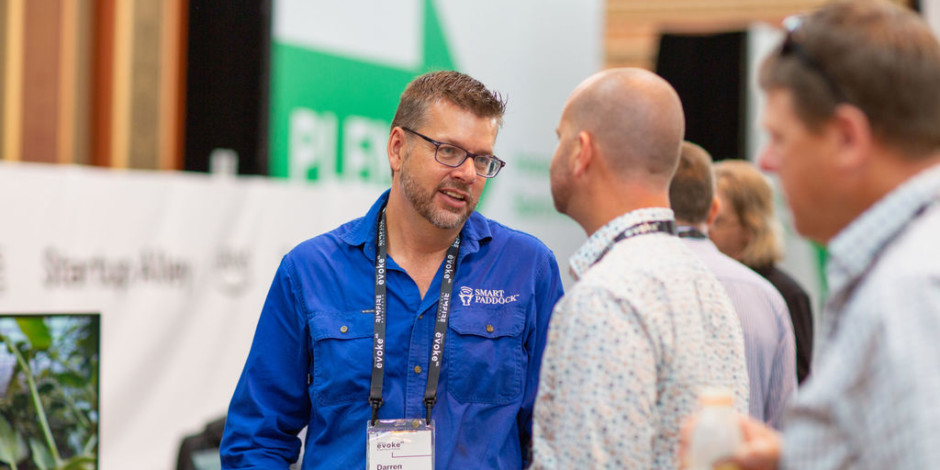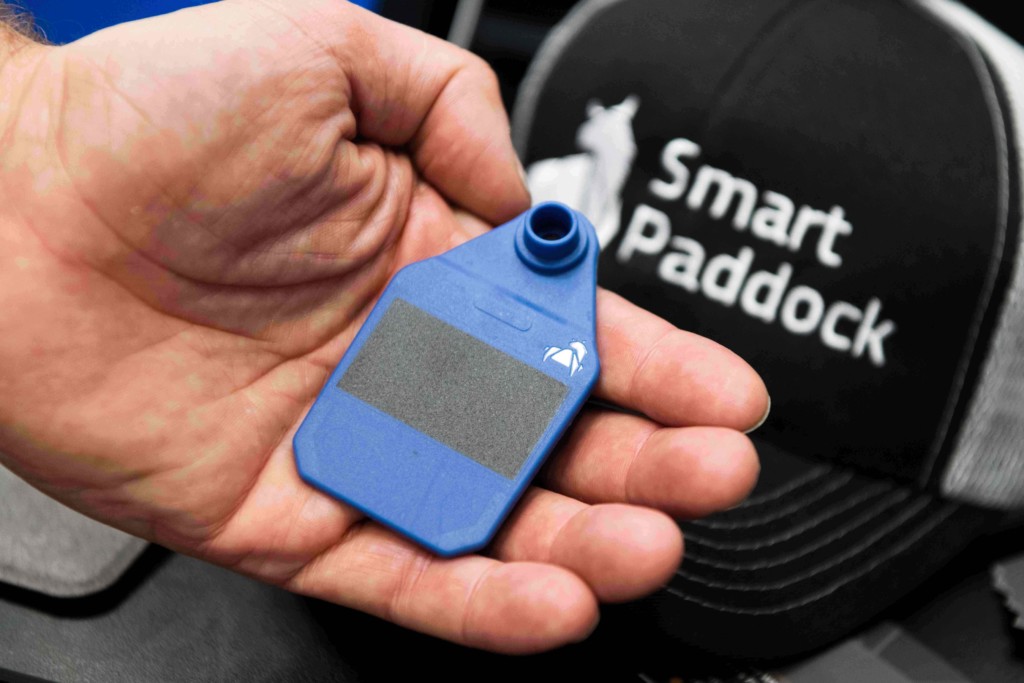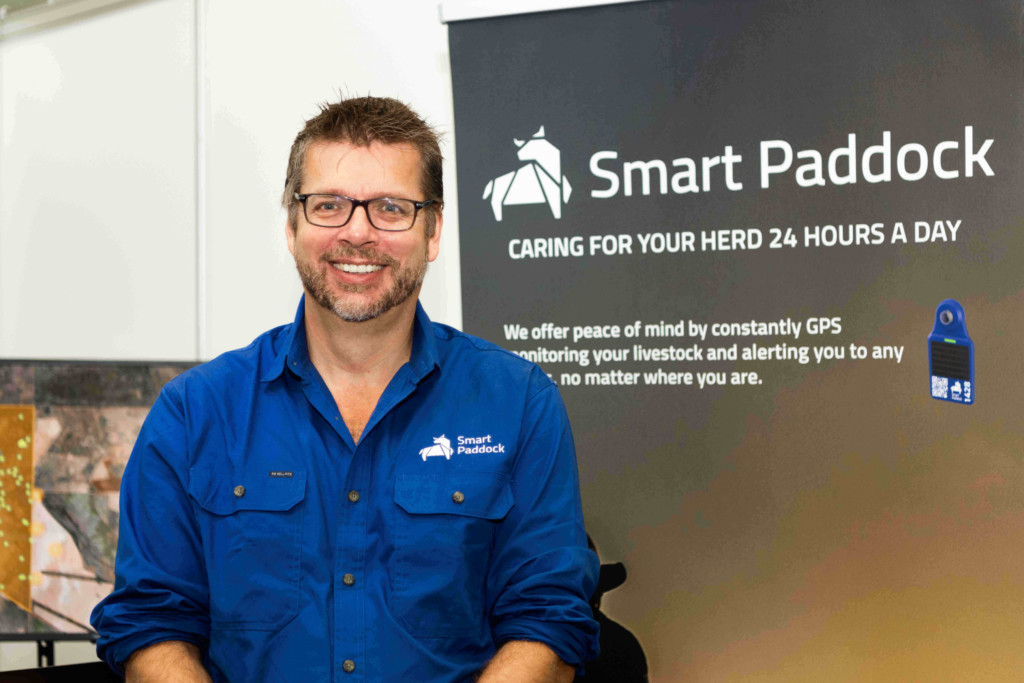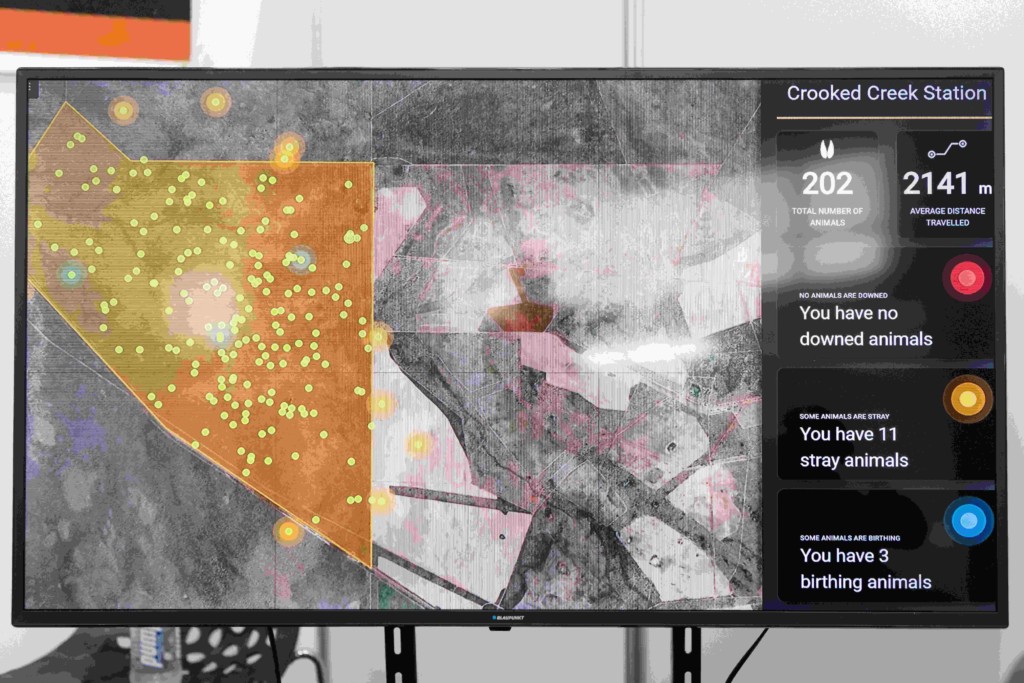Tracking tag and data system a ticket to smarter farming
Smart Paddock – an end-to-end solution for livestock monitoring and farm management, combining GPS smart tags with software – is seeking a $1 million capital raise.

The story of Smart Paddock begins with a golf cart. Founder and former farm kid Darren Wolchyn was working on GPS monitoring of the buggies when a conversation with a childhood friend in Canada sparked the idea for highly optimised livestock systems.
A return flight to Australia, and acceptance into an accelerator in 2017, saw it realised. The result is Victoria-based Smart Paddock, an end-to-end solution for livestock monitoring that pairs lightweight, Australian-made GPS smart-tag hardware with real-time analytic software, providing farmers with information to optimise animal health and maximise production.
The startup is currently looking for investors to raise $1 million in capital, which will be used to secure $600,000 worth of inventory for existing orders and to grow the team. Smart Paddock is also looking at a potential $5 million raise in 18 months to focus on international expansion. Smart tags are potentially worth $696 million in the Australian market and have the potential to scale into the USA market ($2.2 billion) and Brazil ($5.1 billion).
“The beef industry across the world is quite large, and once you include sheep, goats, other red meat … it’s a very large opportunity,” says Darren. “We get requests from all across Australia, America, Canada, South America and Europe, and we just can’t meet that demand at this time.
“We’re looking for the funds to help us build up those higher-end features, to really scale operations, build up case studies, and get more products in the field to gather more data to build more behavioural models.”
‘Underserviced’: A smarter solution for a broader sector
Smart-tagging technology currently exists, but, Darren says, it mostly focuses on dairy animals. The beef industry, and by extension any red meat livestock, is “underserviced”, he believes.
It’s the higher-yield animals in this group – bulls, heifers during calving season – that have the highest potential for success with the Smart Paddock technology, which combines solar-powered, self-monitoring, damage-resistant tags with advanced data analytics and a technical dashboard, to help farmers work smarter – not harder. Smart Paddock’s unique algorithms will enable “a whole module around the reproduction of cattle livestock”, solving breeding issues and providing advanced behavioural models.
RELATED: Agrivoltaics: Farmers as partners in solar energy generation

Photography by Rachael Lenehan
“It’s in the name, I guess,” Darren laughs. “You talk to cattle producers and they are constantly checking water, checking animals, checking fences. They’re very mobile, and these farms are quite large. Enabling these farmers to only deal with issues as they come up, and knowing where these issues are, really helps.”
While the startup has global ambitions, it’s an Australian success story; the team and manufacturing of the tags are firmly based on domestic shores.
“As we scale, we are looking at what opportunities there are to scale production in Australia,” says Darren. “I’m keen to do as much as possible [here]. Agritech is the prime example of where Australia could be leading the world.”
Just finished my pitch for @smart_paddock at #evokeag …time to relax. pic.twitter.com/I1wKM2w55u
— Darren Wolchyn (@darrenwolchyn) February 19, 2019
Australian farming environment key to data
It’s Australian farmers and farming conditions, after all, that have informed the technology, allowing Smart Paddock to withstand the harsh and remote farming environments and everyday wear and tear from livestock. Smart Paddock have tagged cattle and collected data in partnership with key research organisations including the Northern Territory Department of Industry, Tourism and Trade, and Central Queensland University. Smart Paddock recently secured a $535,000 grant with Meat & Livestock Australia to provide 5,000 tags on 3 to 5 properties across Australia, which currently include Victoria, NSW and Queensland.
RELATED: Space-based tech trials offer on-farm value
“[Two challenges are] technology and network,” says Darren. “Just making something that works on a cow is technically very challenging, because it has to be so reliable, so robust, but also small and light and low cost. That is a massive engineering challenge for us and no product will succeed if it doesn’t meet that requirement.”
Farmers can install the smart tags using the same tools they already use. Being solar-powered, the tags are designed to monitor their own power levels and make adjustments accordingly, minimising maintenance. Smart Paddock can either provide the network component, use providers to install them or utilise the national LoRaWAN network, depending on location.
RELATED: Testing agritech with farmers first, pays off for Wagga Wagga wireless networking startup
The dashboard – tracking location and grazing patterns, stray detection, pregnancy and estrus detection, herd health – can be integrated into existing farm management tools or standalone on Smart Paddock’s software. It includes an alert and notification system, optimising the health of herds. It could also be used in retail environments, Darren says, to show the full lifecycle of produce – increasingly important as consumers demand more transparency about their purchases.
Farm-to-farm value and future innovation
A $30 yearly cost per animal returns about $241 value back to the farmer, Darren says. Smart Paddock doubled its FY20/21 revenue in the first quarter of FY21/22, and project sales of $6,907,000 for FY22/23. By April 2022, the startup aims to have a production run of 100,000 units. Smart Paddock is targeting both mid-to-larger farming operations as well as peace-of-mind tracking for smaller farms that go unattended. Darren sees the immediate focus being on higher-value animals and even sees application of the tags for leasing, “almost as a warranty-type situation”.
RELATED: Optiweigh takes the guesswork out of livestock weight monitoring
“Being able to lease out your bulls and keep a close eye on them is actually a real bonus feature of our technology. These animals are just worth so much money.” And that’s just the beginning, Darren says.
“We have a larger vision – it’s not just about tags on animals,” he explains. “There’s a huge impact that we can have on these operations to make them more profitable, more ethical operations.”

For Darren, who grew up farming in Canada, the technology only further enables and reinforces the resourcefulness of farmers. And it could also, he thinks, encourage generational farming and protect traditional farms.
“That is an issue, with Australia and worldwide. You have really low succession rates on these farms and there’s also a lack of skilled staff. I think by inserting more technology into these more traditional farms, you’re going to encourage kids to stay on the farms and also encourage more people to get into farming.”
If you are an investor wanting to learn more, enquire here.
Enjoyed this story? Want to learn more about the Asia Pacific region’s innovative agrifood tech ecosystem? Sign up for our newsletter here and receive fresh stories about global leaders, farmers, startups and innovators driving collaborative change.

